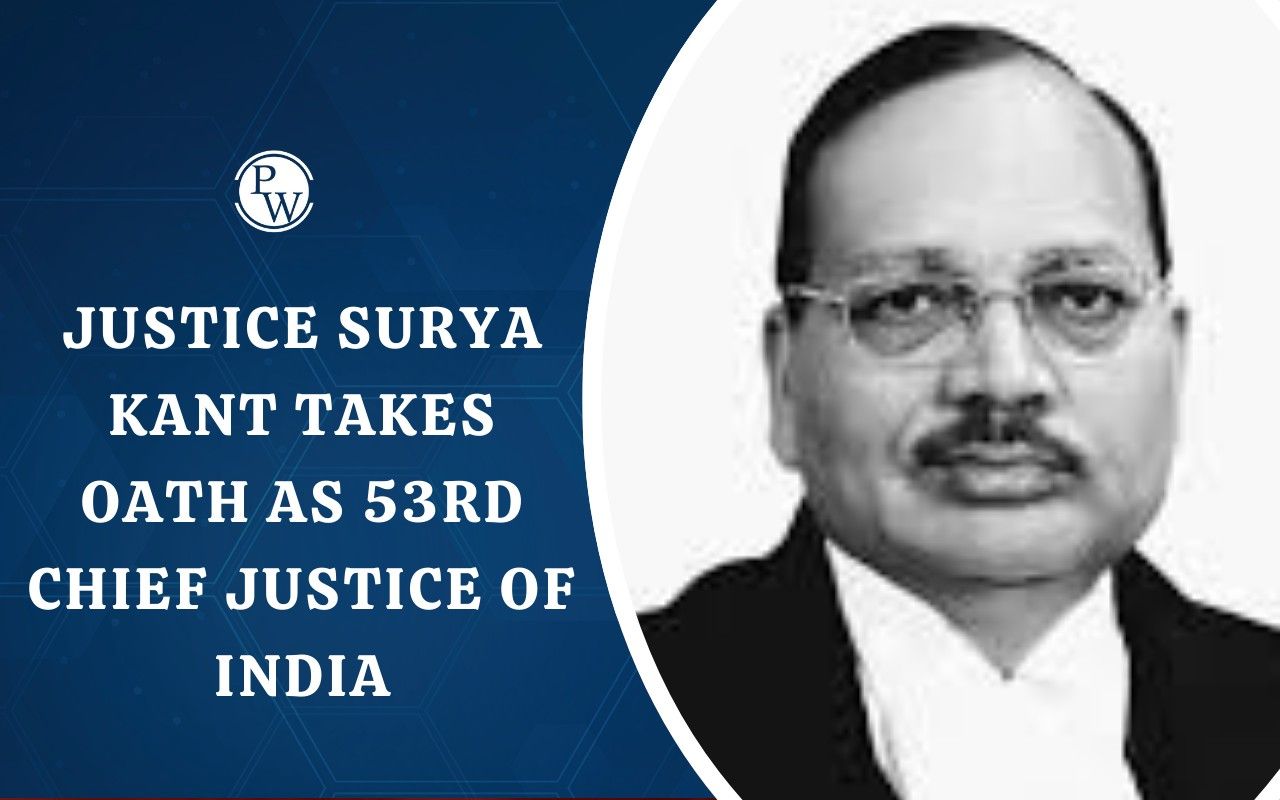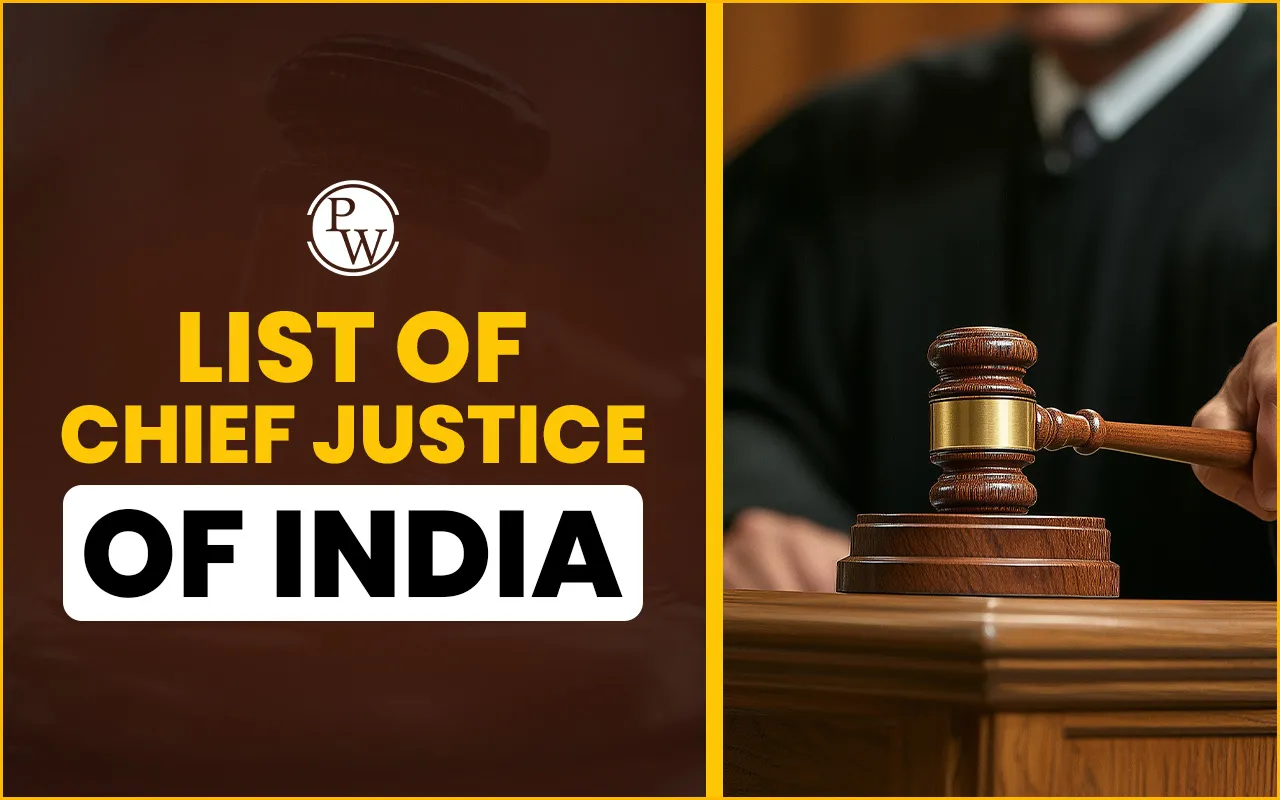

Central Information Commission (CIC) is the highest appellate authority under the landmark Right to Information (RTI) Act, 2005. Constituted by the Central Government, the CIC plays a pivotal role in promoting openness and accountability in public administration, transforming the relationship between the government and its citizens.
Its primary function is to address complaints and second appeals filed by citizens who have been denied information from Central Government public authorities under the RTI Act.
Central Information Commission Overview
Central Information Commission (CIC) is a high-profile statutory body that was established to enforce the Right to Information Act, 2005. It plays a crucial role in promoting transparency and accountability in governance by acting as the final appellate authority for central public authorities.
|
Central Information Commission Overview |
|
|
Aspect |
Detail |
|
Nature of Body |
Statutory Body (Not Constitutional) |
|
Established Under |
Right to Information (RTI) Act, 2005 |
|
Date of Constitution |
October 12, 2005 |
|
Composition |
1. Chief Information Commissioner (CIC) 2. Not more than 10 Information Commissioners (ICs) |
|
Appointing Authority |
The President of India |
|
Selection Committee |
1. Prime Minister (Chairperson) 2. Leader of the Opposition in the Lok Sabha 3. A Union Cabinet Minister nominated by the Prime Minister |
|
Tenure |
3 years or until attaining the age of 65 years, whichever is earlier. (Note: The term and conditions are now prescribed by the Central Government, as per the RTI (Amendment) Act, 2019.) |
|
Reappointment |
Not eligible for reappointment to the same post. |
|
Removal |
By the President on grounds such as proven misbehavior or incapacity (after a Supreme Court inquiry), insolvency, or engaging in paid employment. |
|
Jurisdiction |
All Central Public Authorities, Ministries, Public Sector Undertakings (PSUs), and financial institutions of the Central Government. |
|
Headquarters |
New Delhi |
Establishment and Nature of the Central Information Commission (CIC)
The CIC is a high-level body established to address grievances related to information requests to various central government entities, including ministries, public sector undertakings, and financial institutions.
-
Statutory Body: The Central Information Commission (CIC) was constituted by the Central Government in 2005 through an Official Gazette notification under the provisions of the Right to Information Act, 2005 (Section 12). This means it is a statutory body, not a constitutional one.
-
Jurisdiction: The Commission's jurisdiction extends over all Central Public Authorities.
-
Headquarters: The Central Information Commission is headquartered in New Delhi.
Composition of the Central Information Commission (CIC)
The CIC is a multi-member body designed to handle the volume of appeals and complaints effectively across central public authorities.
-
Members: The Commission consists of:
-
A Chief Information Commissioner (CIC), serves as the head.
-
Up to ten (10) Information Commissioners (ICs).
The Chief Information Commissioner and Information Commissioners are individuals of eminence in public life with wide knowledge and experience in fields such as law, science and technology, social service, management, journalism, mass media, or administration and governance.
Appointment and Eligibility of CIC Members
The appointment process for the Central Information Commission (CIC) members is designed to be bipartisan, ensuring the body's integrity and independence.
Appointment Process
The Chief Information Commissioner and Information Commissioners are appointed by the President of India on the recommendation of a high-powered committee:
|
Appointment Process of CIC Members |
|
|
Selection Committee Member |
Role |
|
Prime Minister |
Chairperson of the Committee |
|
Leader of Opposition in the Lok Sabha |
Member |
|
A Union Cabinet Minister |
Nominated by the Prime Minister |
Disqualification Criteria
A person is ineligible for appointment as the Chief Information Commissioner or an Information Commissioner if they are:
-
A Member of Parliament (MP) or a Member of the Legislature of any State or Union Territory.
-
Holding any other office of profit.
-
Connected with any political party.
-
Carrying on any business or pursuing any profession.
Term of Office and Service Conditions for CIC and ICs
The tenure and service conditions for the Central Information Commission (CIC) members were significantly altered by the Right to Information (Amendment) Act, 2019.
-
Term of Office: The Chief Information Commissioner and Information Commissioners hold office for such term as prescribed by the Central Government or until they attain the age of 65 years, whichever is earlier. The Central Government, through rules, has since prescribed the term as three years.
-
Reappointment: They are not eligible for reappointment to the same office. However, an Information Commissioner is eligible for appointment as the Chief Information Commissioner, provided the total tenure does not exceed five years (under the original 2005 Act's scheme, which has since been made variable by the 2019 Amendment).
-
Salary and Allowances: The salary, allowances, and other service conditions are determined by the Central Government and cannot be altered to the disadvantage of the Commissioner once appointed.
Removal of Chief Information Commissioner and Information Commissioners
The President has the authority to remove the Chief Information Commissioner or any Information Commissioner from office under specific circumstances.
The President can remove them on the following grounds:
-
Insolvency: If the person is declared an undischarged insolvent.
-
Moral Turpitude: If convicted of an offence involving moral turpitude, as determined by the President.
-
Outside Employment: If he/she engages in any paid employment outside the duties of the office.
-
Infirmity: If, in the President's opinion, he/she is unfit to continue due to mental or physical infirmity.
-
Vested Interest: If he/she acquires a financial or other interest that is likely to affect the official duties negatively.
Additionally, the President can remove a member on the grounds of proven misbehavior or incapacity. In this case, the President must refer the matter to the Supreme Court for an inquiry. If the Supreme Court, after the inquiry, upholds the cause of removal and advises it, the President can then remove the concerned individual.
Powers and Functions of the Central Information Commission (CIC)
The Central Information Commission (CIC) is vested with significant powers to ensure the effective implementation of the RTI Act, 2005. Its functions are largely quasi-judicial in nature.
Investigative and Appellate Powers
-
Complaint and Appeal Adjudication: The CIC has the duty to receive and inquire into complaints from any person who:
-
Has been unable to submit an RTI request because a Public Information Officer (PIO) has not been appointed.
-
Has been refused information or has received no response within the specified time limits (e.g., 30 days or 48 hours in case of life/liberty).
-
Considers the information provided to be incomplete, false, or misleading.
-
Believes the fees charged are unreasonable.
-
Decides on the Second Appeal against the decision of the First Appellate Authority.
-
Suo-Moto Inquiry: The Commission has the power to order an inquiry into any matter if there are reasonable grounds (suo-moto power).
-
Civil Court Powers: While inquiring into a matter, the CIC has the same powers as a Civil Court under the Code of Civil Procedure, 1908, in respect of:
-
Summoning and enforcing the attendance of persons and examining them on oath.
-
Requiring the discovery and inspection of documents.
-
Requisitioning any public record or copies from any court or office.
Power to Ensure Compliance and Impose Penalties
The CIC can secure compliance with its decisions from the Public Authority by:
-
Ordering access to information in a particular format.
-
Directing the public authority to appoint a PIO where none exists.
-
Recommending steps for better record-keeping and proactive disclosure of information (Section 4 of the RTI Act).
-
Imposing Penalties: The Commission can impose a penalty on the Public Information Officer (PIO) for unreasonable refusal, denial, or providing false information at a rate of ₹250 per day up to a maximum of ₹25,000. It can also recommend disciplinary action against the errant official.
-
Annual Reporting: The Commission is mandated to submit an annual report to the Central Government on the implementation of the RTI Act, which is then placed before each House of Parliament.
Challenges and Issues Facing the Central Information Commission
Despite its critical role in strengthening democracy, the functioning of the Central Information Commission (CIC) is often marred by operational challenges, which are significant for UPSC aspirants to understand for their Mains examination:
-
Vacancies and Backlog: The CIC frequently faces a high number of vacancies in the posts of Information Commissioners, leading to a huge backlog of cases and significant delays (often more than a year) in resolving appeals and complaints.
-
Impact of the RTI (Amendment) Act, 2019: The 2019 Amendment, which gave the Central Government the power to prescribe the term of office and salaries of the CIC and ICs, has been criticized for potentially eroding the autonomy and independence of the Commission.
-
Transparency Issues: There are concerns regarding the lack of transparency in the selection criteria for Commissioners.
-
Reluctance to Act: Critics point out that the Commission is sometimes reluctant to take strict action, such as imposing penalties, against government personnel.
Central Information Commission FAQs
Is the Central Information Commission (CIC) a Constitutional Body?
Who appoints the Chief Information Commissioner (CIC)?
What is the tenure of the Chief Information Commissioner and Information Commissioners?
What is the maximum penalty the CIC can impose on a Public Information Officer (PIO)?
What are the powers of the CIC during an inquiry?










